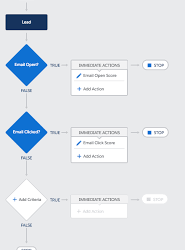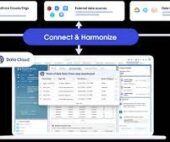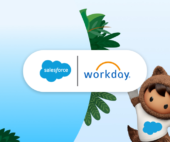About Salesforce integration with Oracle Eloqua
Synchronizes accounts, contacts, leads and opportunities in Salesforce with Oracle Eloqua. For more information, see Data imports from Salesforce to Oracle Eloqua. Uses contact data in Oracle Eloqua to update contacts and generate sales leads in Salesforce.
However, the integration of Oracle Eloqua with Salesforce comes with certain limitations that can have adverse effects on businesses. In this blog post, we will explore these limitations and how Salesforce Marketing Cloud can serve as a solution.
Limitations:
1. Integration Process
- Explanation: Integrating Oracle Eloqua with Salesforce can be intricate and time-consuming, requiring customizations to accommodate unique business needs.
- Use Case Example: A company aims to enhance marketing and sales alignment by integrating Eloqua with Salesforce. However, the integration process proves complex, involving Salesforce administrators and customizations to meet specific business requirements.
- Impact on Business: Complexity in the integration process can result in implementation delays, increased costs, and potential errors.
- Salesforce Marketing Cloud Benefit: Salesforce Marketing Cloud offers a more seamless integration process within its CRM system, reducing complexity and integration time.
2. Flexibility and Customization
- Explanation: Eloqua’s native CRM connectors, including Salesforce, offer limited flexibility and customization options.
- Use Case Example: A company wishes to synchronize Salesforce contacts and leads without email addresses into Eloqua, but Eloqua supports only out-of-the-box synchronization with email addresses.
- Impact on Business: Limited flexibility and customization options may hinder the company’s ability to fully utilize the integration, necessitating additional workarounds or customizations.
- Salesforce Marketing Cloud Benefit: Salesforce Marketing Cloud provides greater flexibility and customization options within its ecosystem, enabling organizations to tailor their marketing automation processes more effectively.
3. Data Synchronization
- Explanation: Data synchronization between Oracle Eloqua and Salesforce can be challenging, requiring dedicated workflow activities and configurations.
- Use Case Example: A company aims to import external data into Oracle Campaign and synchronize it with existing Salesforce data, demanding configuration of CRM Connector activities and creation of complex workflows.
- Impact on Business: Difficulties in data synchronization can result in data inconsistencies, reduced efficiency, and potential errors in marketing campaigns.
- Salesforce Marketing Cloud Benefit: Salesforce Marketing Cloud offers superior data synchronization capabilities within its platform, ensuring consistent and accurate data across marketing campaigns.
4. User Experience and Interface
- Explanation: Eloqua’s user interface may lack the intuitiveness and user-friendliness of Salesforce Marketing Cloud, posing challenges for marketers.
- Use Case Example: A marketing team struggles with Eloqua’s interface, finding it difficult to create, manage, and analyze marketing campaigns.
- Impact on Business: A less intuitive user interface can lead to reduced productivity, increased training costs, and potential errors in marketing campaigns.
- Salesforce Marketing Cloud Benefit: Salesforce Marketing Cloud provides a more user-friendly interface, simplifying the process for marketers to create, manage, and analyze marketing campaigns effectively.
5. API Limitations
- Explanation: Oracle IO Target APIs have limitations on the number of requests per second, with a maximum of 50 requests per minute, leading to throttling and service unavailability.
- Use Case Example: An organization using Oracle IO Target APIs experiences service unavailability after reaching the API request limit while retrieving change logs and performance data for activities.
- Impact on Business: API limitations can cause delays in retrieving data, reduced efficiency, and potential errors in marketing campaigns.
- Salesforce Marketing Cloud Benefit: Salesforce Marketing Cloud offers more robust API capabilities, allowing organizations to make additional requests without encountering service unavailability or throttling issues.











